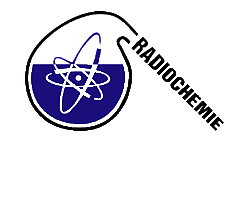Speaker
Ms
Melanie Müller
(Institute of Analytical Chemistry, TU Dresden)
Description
Thermodynamic data for actinide-organic complexes are required for long term safety assessment of nuclear waste disposal. Particular attention should be paid to higher ionic strengths, which are to be expected in salt and clay rock formations. Higher temperatures have also to be considered, since temperatures can go up to 100°C in the near field of radioactive waste disposal. Up to now most of the available thermodynamic data for actinide complexation with dissolved or suspended natural organic matter are related to low ionic strength and 25°C.
In this work we present detailed thermodynamic data for the complex formation of trivalent neodym (as an chemical analogue to americium) and americium with ethanedicarboxylate (oxalate) and methanedicarboxylate (malonate) at various ionic strengths ( up to 3 mol kg-1 NaCl) and temperatures (25°C to 55°C). The isothermal titration microcalorimetry (ITC) was used for the direct determination of reaction enthalpy ΔRH of complex formation. With a sample volume of just 200 µL the method is applicable for actinide solutions. Additionally, spectrophotometric titration experiments were performed in order to determine the species distribution and complex stabilities.
In preparation of complexation studies we determined ionic strength dependent protonation constants of oxalate by ITC and compared the results with literature values. The formation of the first protonation step is an endothermic process. With increasing ionic strength the ΔRH decreases towards zero. The standard state thermodynamic data log K°, ΔRH°, ΔRS°, ΔRG°, which were determined from the conditional thermodynamic data using the specific ion interaction theory (SIT), are in excellent agreement with literature values.
The formation of 1:1 Nd(III)-oxalate complex is a two-phase exothermic process. A fast and a slow part can be distinguished. This effect is a matter of current investigations. In the case of Am(III) we performed a spectrophotometric titration under comparable experimental conditions. No peculiarities were observed in the spectra and a 1:1 complex species with a stability constant of log K°110 = 6.8 ± 0.1 was determined. This is the first time that the value is determined by a spectroscopic method and the results are in good agreement with the literature value [1].
ITC experiments with the Nd3+ -malonate system were carried out at ionic strengths between 0.25 and 3 mol kg-1 (NaCl) and at 25, 35, 45 and 55°C. All ITC traces show an endothermic complex formation. At 25°C and I = 1 mol/kg the reaction enthalpy ΔH is 11.2 kJ mol-1 and the entropy is 95 J mol-1 K-1). These results are close the values reported for the analogue Eu(III) complex in NaClO4 [2]. With increasing ionic strength ΔRH is shifting towards zero whereas it is increasing with increasing temperature. At the investigated concentration range the formation of the 1:1 complex species is predominantly. Conditional thermodynamic data were determined from the curves and the ionic strength corrected data log K°, ΔRH°, ΔRS° and Δε for the NdMa+ species are reported in this work.
[1] Hummel, W. et al. (2005) Chemical Thermodynamics 9, Elsevier, Amsterdam, The Netherlands
[2] Kitano, H. et al. (2006) Radiochim. Acta 94, 541-547
Primary author
Ms
Melanie Müller
(Institute of Analytical Chemistry, TU Dresden)
Co-authors
Ms
Franziska Taube
(Institute of Analytical Chemistry, TU Dresden)
Mrs
Margret Acker
(Central Radionuclide Laboratory, TU Dresden)
Mr
Steffen Taut
(Central Radionuclide Laboratory, TU Dresden)

